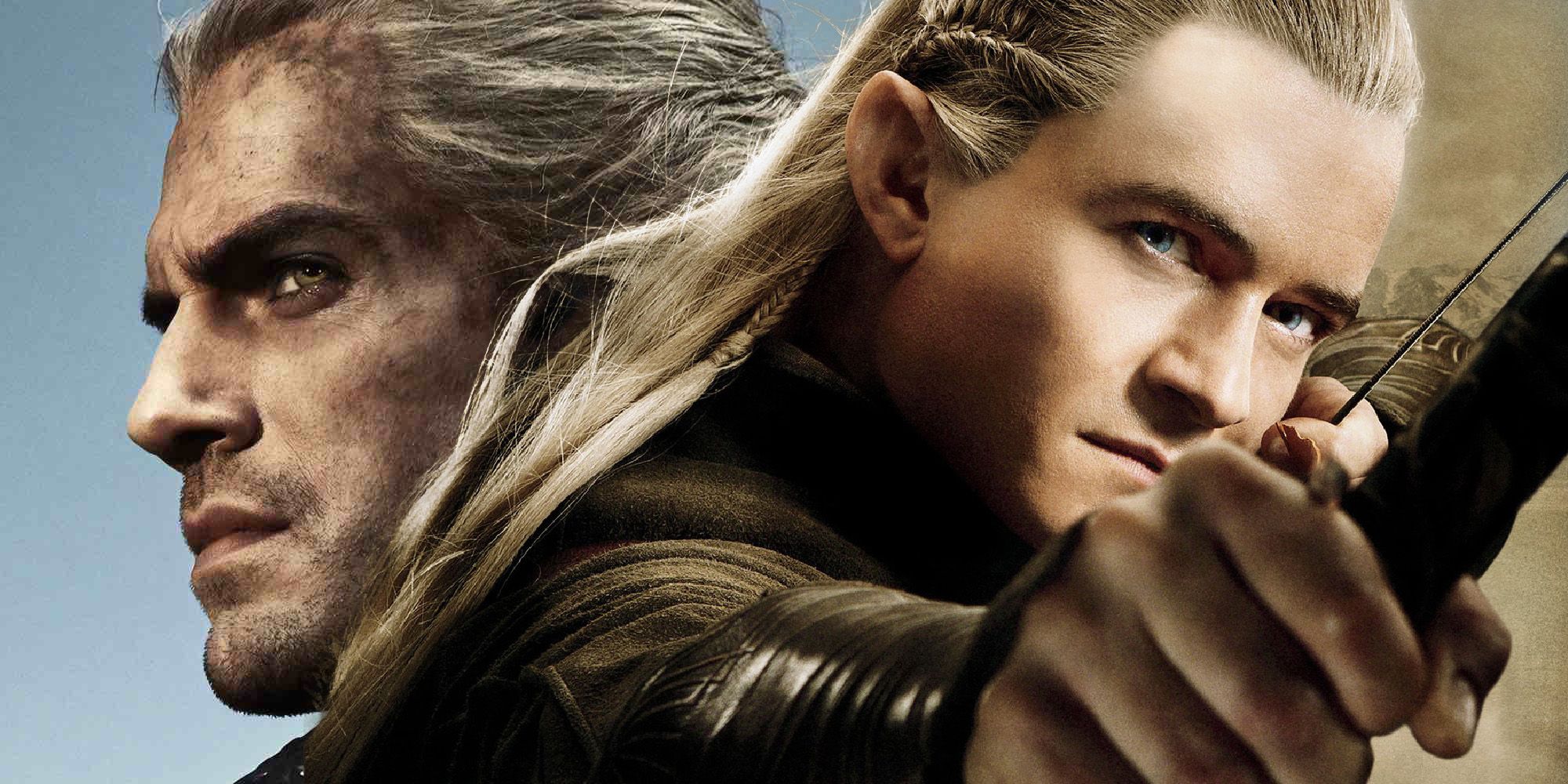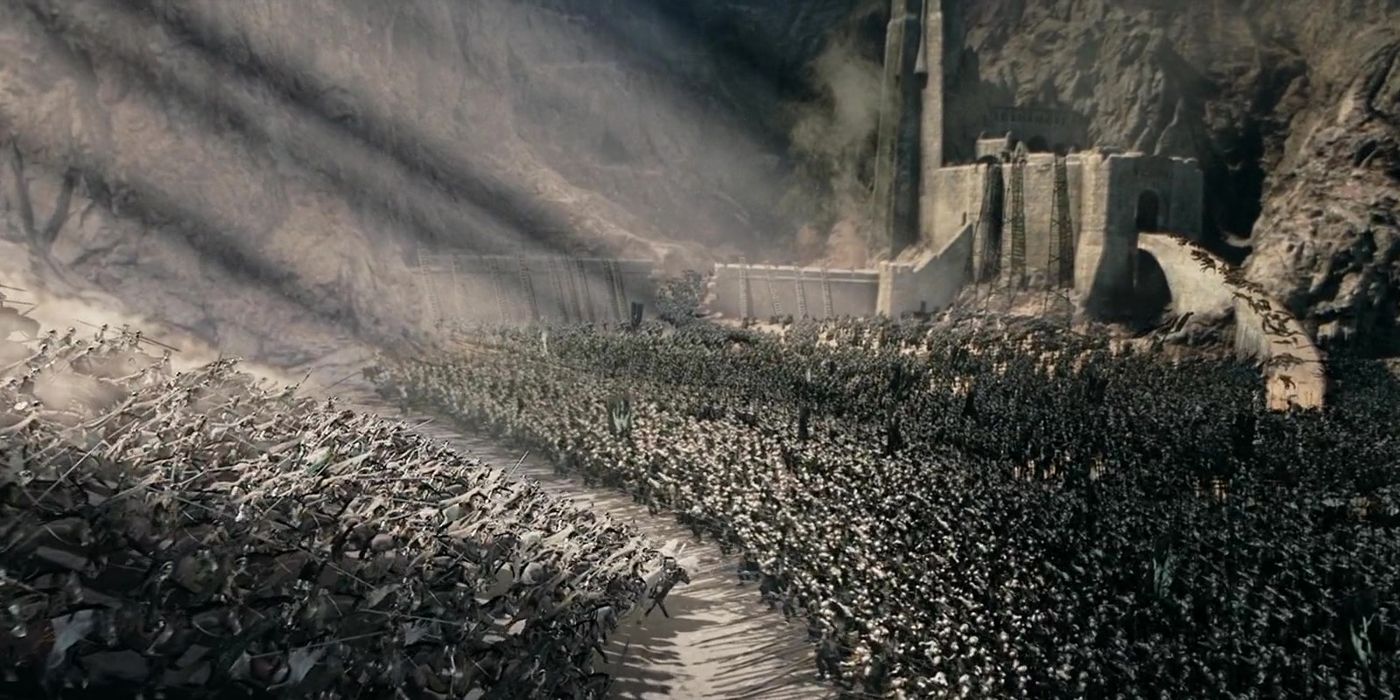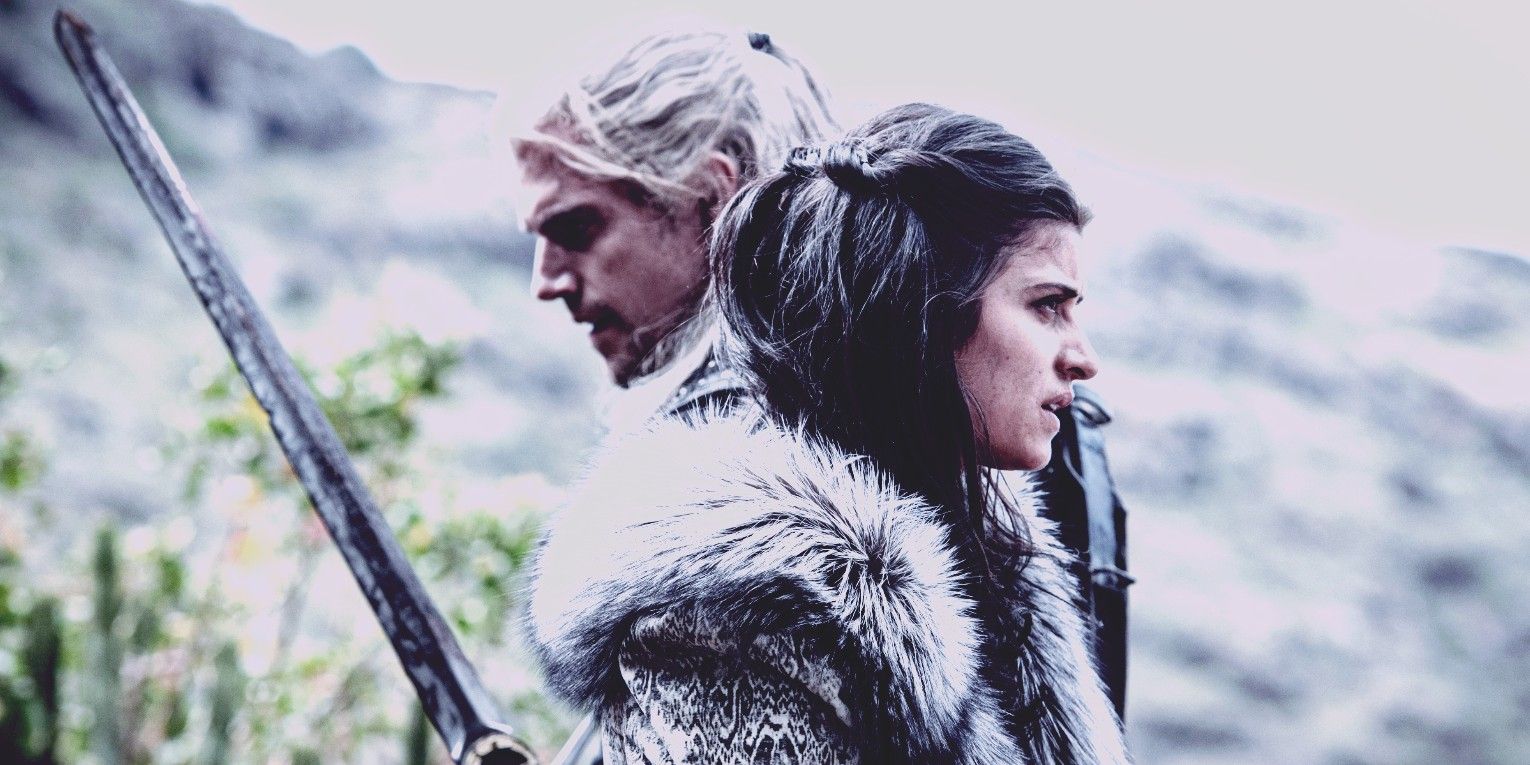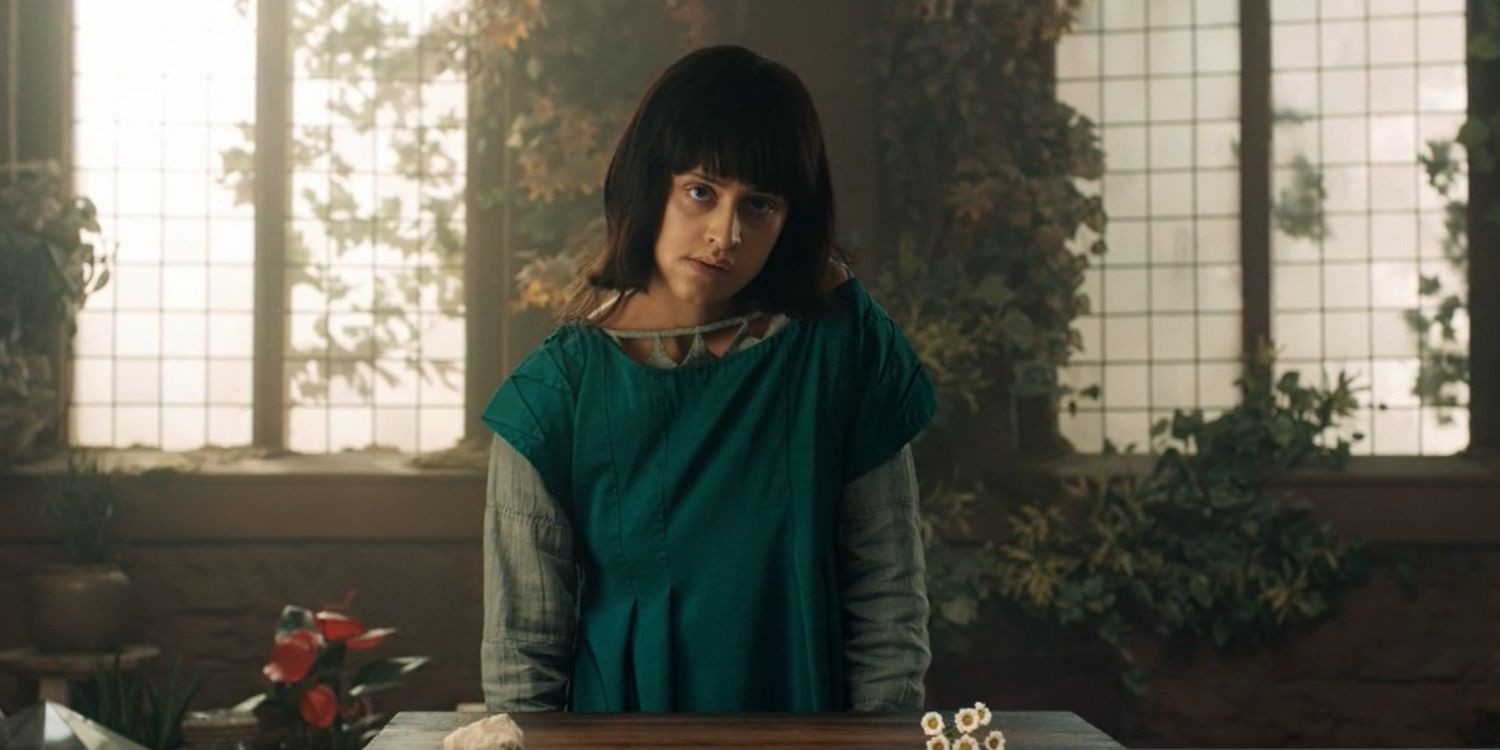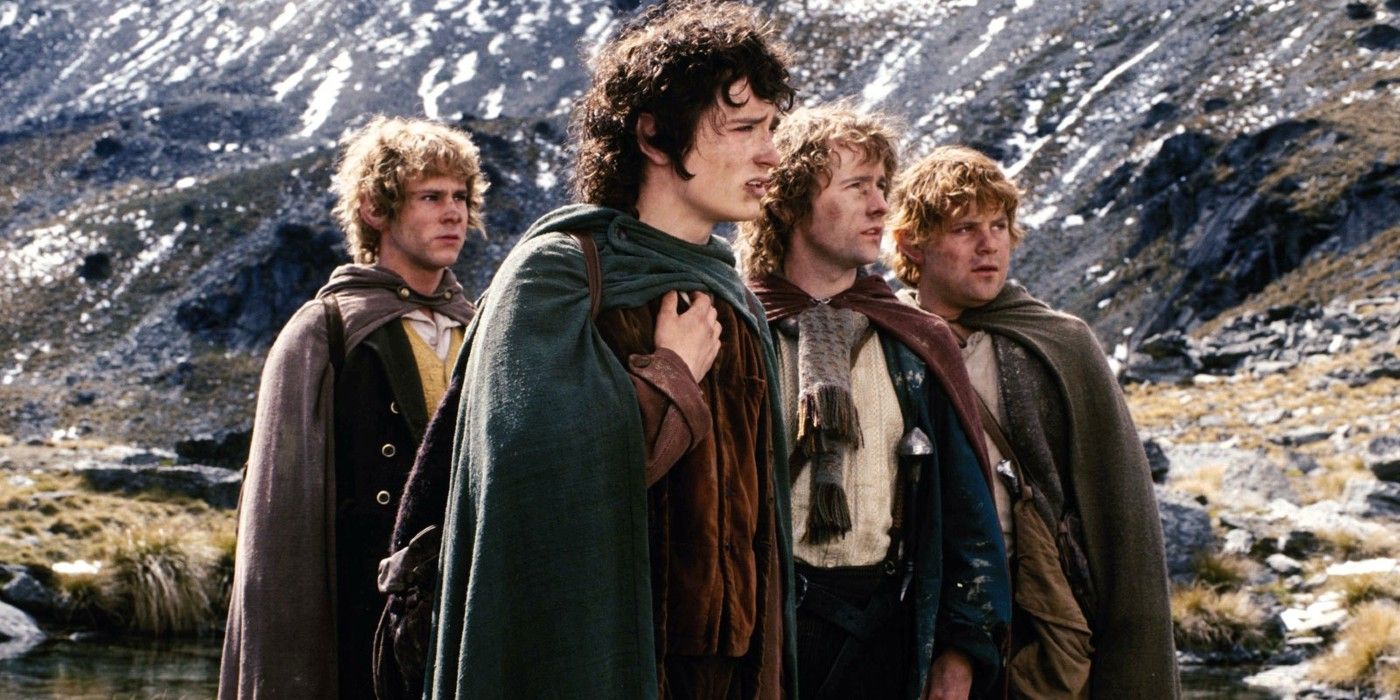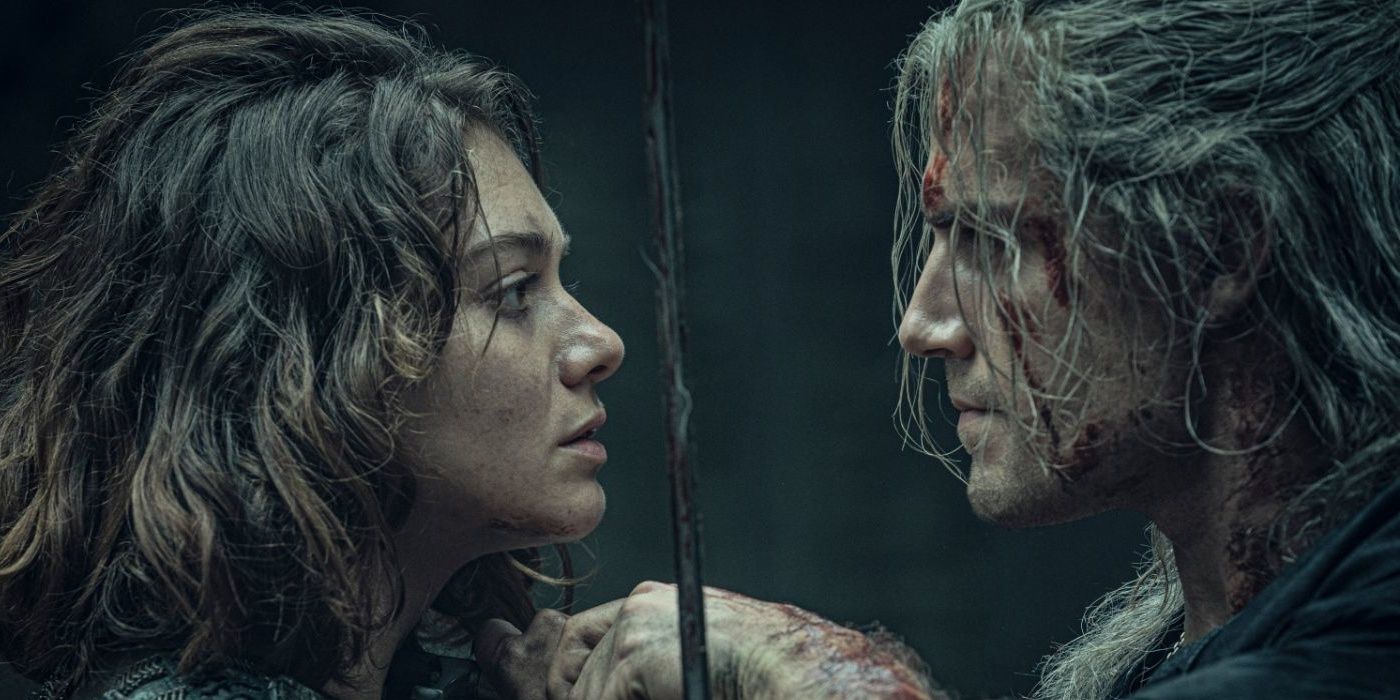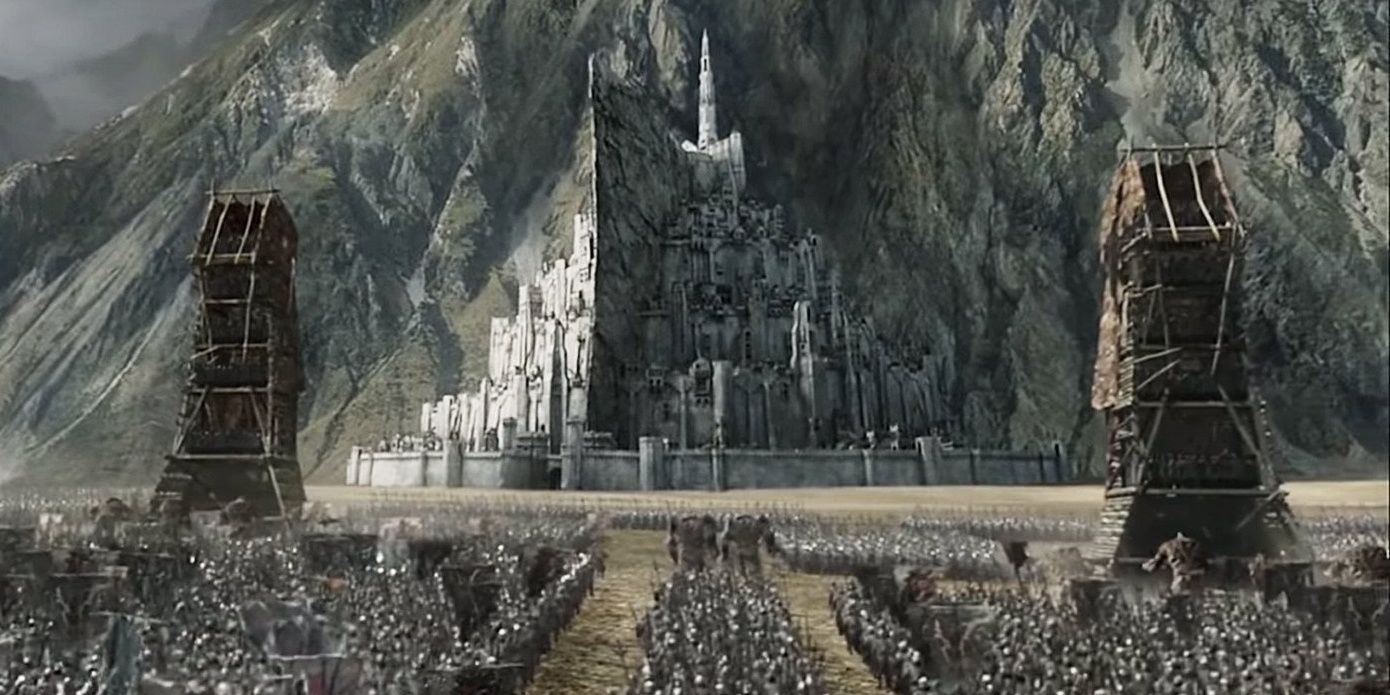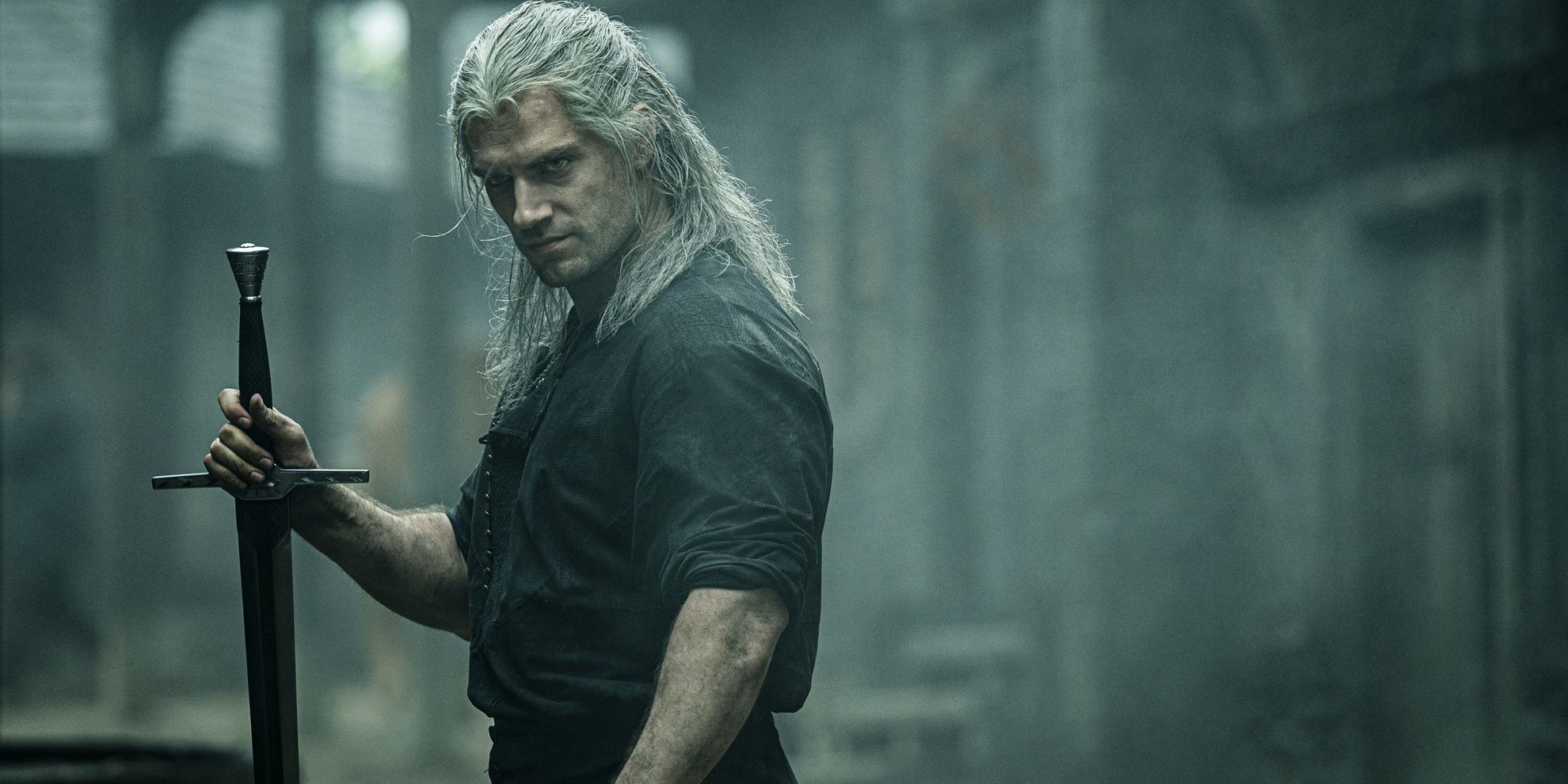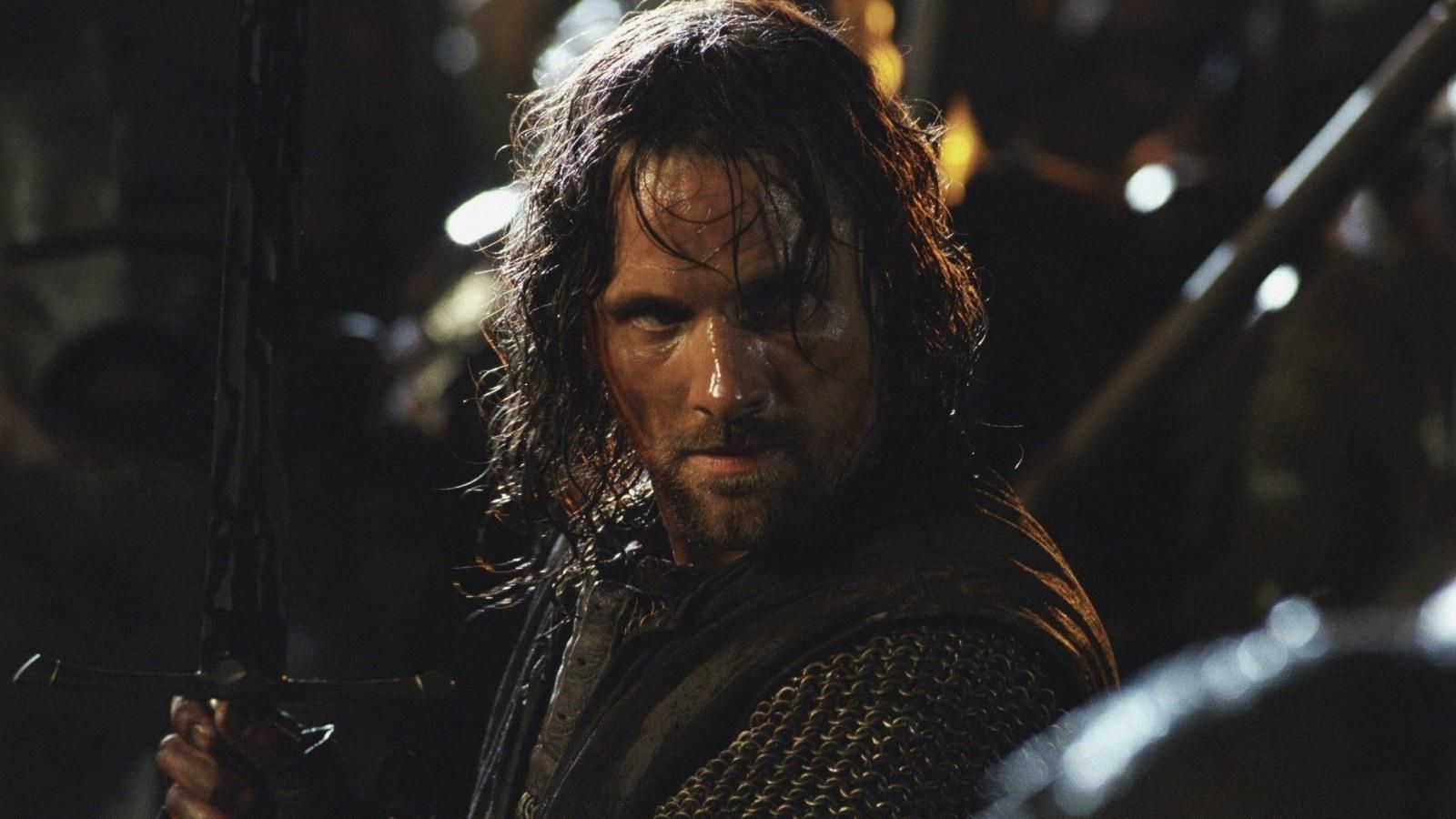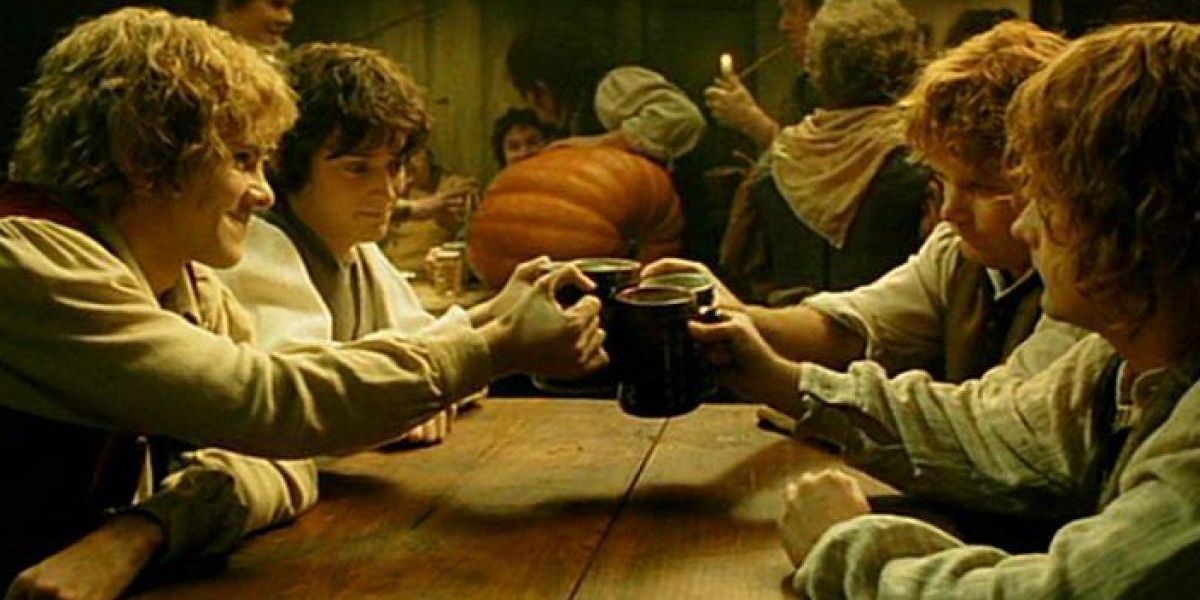The Witcher and The Lord of the Rings are two of the biggest fantasy series of recent decades, but is one better than the other? Aside from being in the fantasy genre, The Witcher and The Lord of the Rings have surprisingly little in common, but they aren’t so different that they can’t be compared. There is, after all, a significant overlap in the target audience. Many Lord of the Rings fans who watched Game of Thrones would have been looking for a new series that scratched the same epic fantasy itch around the time season 1 of The Witcher released on Netflix.
Despite a poor critical reception, The Witcher is Netflix’s most successful venture into the fantasy genre with over 76 million views. Likewise, the Lord of the Rings trilogy was incredibly popular at the box office and on top of that, each Lord of the Rings installment also earned at least one Oscar, with The Lord of the Rings: The Return of the King sweeping all 11 award categories for which it was nominated – including Best Picture – tying with Titanic and the original Ben-Hur for most Oscars.
Though The Witcher and The Lord of the Rings are very different adaptations, an argument could reasonably be made for each being better than the other. It may not be fair to compare the first season of an incomplete show to a beloved blockbuster trilogy, but The Witcher – Netflix's most-watched season 1 debut – has proven that can compete with Lord of the Rings across several important metrics. Here is a breakdown of nine such metrics and a verdict on which series performs better in each category.
Better Production: The Lord Of The Rings
The Witcher filmed in Hungary, Spain, and Poland – aptly chosen locations, since the books contain elements of European and Slavic folklore. Another smart choice by production was to avoid CGI where possible. Generally speaking, practical effects still look better than CGI and its overuse can have diminishing returns – as proven by none other than the Lord of the Rings prequel trilogy, The Hobbit.
However, there hasn’t been a production before or since that compares to The Lord of the Rings. Tens of thousands of people (including extras) lent their skills to the production. This effort, dedication, and craftsmanship shine through every scene in The Lord of the Rings, not to mention the incredible landscapes of New Zealand that beautifully portray Middle Earth.
Better Characters: The Witcher
The characters in Lord of the Rings are all unique and likable, but Boromir is arguably the most compelling character in the whole trilogy. No other protagonist has flaws that shape their narrative in an equally profound way. As for villains, we aren't shown why Sauron is evil and the backstory of his fall that exists in the work of Tolkien is left out, despite the fact that the movies would have benefited from that insight.
The Witcher’s season 1 villains – Fringilla, Cahir, and the kingdom of Nilfgaard – are likewise inexplicably evil. And while there is something to be said for The Witcher’s inclusion of more diverse characters, particularly women – of which The Lord of the Rings is noticeably lacking – The Witcher occasionally perpetuates the "strong female character" trope by focusing on how powerful Yennefer is rather than showing her as a well-rounded character who also happens to be strong. Still, The Witcher is a very character-driven show. Geralt, Yennefer, and Ciri move the plot forward and their weaknesses are as apparent as their strengths, which makes them relatable even when they’re not very likable.
Better Source Material: The Lord Of The Rings
The Witcher started as a series of short stories written in the late 1980s by Polish author Andrzej Sapkowski. The stories were translated to English in 2007 – the same year the first Witcher video game was released. Though the books have had a cult following in Europe for a while, it was the popularity of the video games that attracted Netflix to The Witcher. Despite this, season 1 only occasionally references the games and primarily draws from the books, which are mostly short stories of Geralt's adventures.
J.R.R. Tolkien’s trilogy, The Lord of the Rings, is a genre-defining masterpiece. First published in the 1950s, it remains one of the best-selling book series of all time. Virtually all modern fantasy has been influenced – intentionally or not – by J.R.R. Tolkien. The Lord of the Rings films successfully adapted a source that was beloved by millions, preserving much of Tolkien’s original work while presenting it in a format that appealed to some who either disliked the books or had never read them.
Better Magic: The Witcher
The rules for magic in both The Lord of the Rings and The Witcher are vague, poorly explained, or largely ignored, but only one series features magic prominently and even attempts to explain how its magic works while the other barely mentions the word. In The Lord of the Rings: The Fellowship of the Ring, Gandalf describes “magic rings of power” and the word “magic” is not repeated again in the trilogy. Magic not a significant plot device and only one of the main protagonists (Gandalf) uses magic at all.
In The Witcher, magic is critical to the plot. All three of the main characters – Yennefer, Geralt, and Ciri – have magical abilities. One problem with The Witcher’s magic, though, is inconsistency. When Fringilla first attempts magic, her arm is injured by the simple act of levitating a stone. This sets up the expectation that when powerful spells are used, there will be dire consequences. But aside from the Nilfgaardian mages who are forced to sacrifice themselves as fireballs, these consequences are applied with frustrating irregularity. That being said, many fantasy fans are starved for TV that unapologetically centers magic – and The Witcher does just that.
Better Musical Score: The Lord Of The Rings
“Toss A Coin To Your Witcher,” sung by Joey Batey as the bard, Jaskier, became a viral hit around the time The Witcher debuted on Netflix and it’s an absolute earworm. The music for The Witcher, including “Toss A Coin To Your Witcher,” was composed by the duo of Sonya Belousova and Giona Ostinelli, who also worked together on The Mist. The music of The Witcher does a good job of setting a mystical and adventurous tone, but it can’t compete with the iconic score of The Lord of the Rings.
Howard Shore’s work on Lord of the Rings is nothing short of genius. He composed over a hundred leitmotifs (a short, recurring melody) for the trilogy. Each tune represents something very specific – a character, emotion, location – and someone who is even moderately familiar with the films can likely hum part of the Shire theme (“Concerning Hobbits”), the Fellowship’s theme (“The Breaking of the Fellowship”), and the violin solo that plays as the fellowship enters Rohan (“Riders of Rohan”).
Better Sword Fights: The Witcher
The Witcher's sword fights are choreographed in a way that is dynamic and engaging, particularly the fight between Geralt and Renfri in season 1, episode 1, “The End’s Beginning.” It’s an intense, emotional duel between two skilled fighters that ends in Renfri’s tragic death. In reference to The Witcher, some fencing experts have commented that several techniques are overused or misused, particularly the way Geralt sometimes holds his sword with his thumb pointing away from the blade or spins during combat. But despite being somewhat inaccurate, these techniques are visually impressive and, as with most fantasy films, realism is not the ultimate goal.
As for The Lord of the Rings, there are no sword duels in the entire film trilogy. This is surprising, considering that swords feature so prominently in the plot, yet the majority of the swordplay is shown mid-battle where the sword-wielding characters like Aragorn, Boromir, and Eowyn cut down enemies - including The Witch King - with ease. This might make sense in the context of a battle, but it’s visually underwhelming.
Better Worldbuilding: The Lord Of The Rings
The depth and breadth of the civilization that Tolkien created are unparalleled, but despite the exhaustive material available to draw from, The Lord of the Rings film trilogy takes a rather conservative approach to exposition. The majority of worldbuilding in Lord of the Rings is visual, thanks to the painstaking efforts of the production team who built sets, sewed costumes, applied makeup and prosthetics, and utilized state-of-the-art technology to bring the Middle Earth to life. But even though there isn’t an abundance of worldbuilding exposition in either series, The Lord of the Rings does not compromise consistency or clarity as often as The Witcher.
The Witcher leans a little too much on subtext to explain its gritty, supernatural world – at other times, it neglects worldbuilding altogether. This can be confusing, but, perhaps to its credit, the Netflix series doesn’t bother pretending that worldbuilding matters as much as the story. The Witcher focuses on how its characters move through the world rather than getting caught up in the details of the world itself. This stylistic choice works well for The Witcher because it allows the characters to remain in the spotlight and keep the story moving.
Better Themes: The Witcher
The Lord of the Rings contains many universal themes – Gandalf alone shares several highly quotable insights on good, evil, death, power, and fate. The themes of hope, courage, and friendship that connect the protagonists across all three movies are inspiring, but the critical analysis of these themes is relatively superficial. The problem lies in the fact that The Lord of the Rings doesn’t ask a lot of thought-provoking questions – certainly not as many as The Witcher.
The Witcher has a much darker tone and equally dark themes. At times, The Witcher spreads itself thin, trying to address too many heavy themes too quickly and failing to do each one justice. Going into season 2, the show would do well to narrow its focus. A good start would be examining one of its most prominent themes in greater depth: things are not always what they seem. This is a concept that Renfri, the Striga, King Foltest, Yennefer, the Doppler, Borch, and Geralt all illustrate. The show frequently presents a human or a monster and then raises the provocative question: “What is a monster, really?”
Better Plot: The Lord Of The Rings
Because J.R.R. Tolkien wrote Lord of the Rings as a single work, he was able to revise the work in its entirety and form a cohesive, epic story that contains relatively few inconsistencies, especially considering that it’s one of the most heavily scrutinized works of fiction. Peter Jackson wisely chose not to stray far from Tolkien’s original work and the result is a film trilogy that follows the tried-and-true three-act structure within each film and across the broader story of the trilogy.
On the other hand, The Witcher books are a saga of short story compilations, which makes them prime for adapting to the episodic format of a TV series, but the Netflix show is not entirely episodic. Each episode adds to the overarching plot of Geralt, Yennefer, Ciri’s intertwined destinies, causing season 1 to jump around in time and from character to character in a way that is too often convoluted, no matter how satisfying the payoff at the very end of the season when the timelines finally converge.
Better Series: The Lord Of The Rings
Though it's not as clear a call as some Tolkien fans might assume, The Lord of the Rings is a better series than the season that we currently have of The Witcher. The production team tended to every detail with care, from the music to the costumes and sets. It also goes without saying that J.R.R. Tolkien is owed a great deal of credit for the characters, world, and story. The Lord of the Rings books and films are both regarded as some of the best of all time in their respective formats. But if The Witcher can address some of its issues with inconsistencies, worldbuilding, character tropes, and convoluted plotlines in future seasons, it may yet prove to be as strong a fantasy adaptation as The Lord of the Rings.

